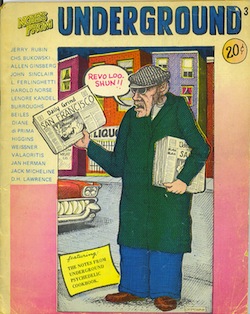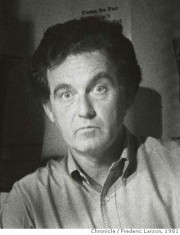They left 12 roses on his doorstep along with half of their kidnap victim’s California driver’s license. He was grateful for the roses. “They could have been 12 bullets,” he said.
The kidnappers were the Symbionese Liberation Army. The license belonged to Patty Hearst. The year was 1974. The roses were both a warning and an invitation. He’d done an “interview” with the SLA and printed it in his newspaper. This was their response.The interview was faked — nobody knew where to find them — but their statements were real. He’d cobbled them together from fugitive literature, mainly a manifesto they’d issued. I’m talking about John Bryan, cherished friend and colleague, who died in San Francisco on Feb. 1.
As Warren Hinckle once described him, he was “the Peter Zenger of the underground press … unconquered and ungovernable by the puny laws of journalism.”
The world is a much poorer place without him. Here’s the obituary in the San Francisco Chronicle, which gives an accurate (though necessarily incomplete) account of his life and career.
That warning-invitation led to meetings with the SLA. John became a go-between for the Hearst family in an unsuccessful ransom attempt. The SLA had claimed it wanted to trade Patty Hearst for SLAers Joe Remiro and Russ Little, who were in jail on murder charges (for the assassination of the superintendent of the Oakland schools, Marcus Foster).

Notes From Underground: REVO LOO-SHUN!! Cover by Gary Grimshaw. Editors: John Bryan and Jan Herman [1970].
What the Chronicle obit doesn’t say — I dunno why — is that John killed himself. He’d been suffering from full-body rheumatoid arthritis for more than a decade and was in constant pain.
The last time I talked with him, in September, he was working at an indie bookstore, the Abandoned Planet. He sounded reasonably well, considering, though hardly like the roaring tornado I was familiar with during the good old bad old days — when he was fiery, almost crazed, with anti-establishment fervor.
I admired many things about John, his unrelenting conviction especially, but what I admired most was his raw personal courage. He had a stroke in November, which prevented him from writing. That was the final insult. He downed a bottle of vodka and “blew his head off” with an antique rifle. Shades of Hemingway and Hunter T., whose company he joined.

